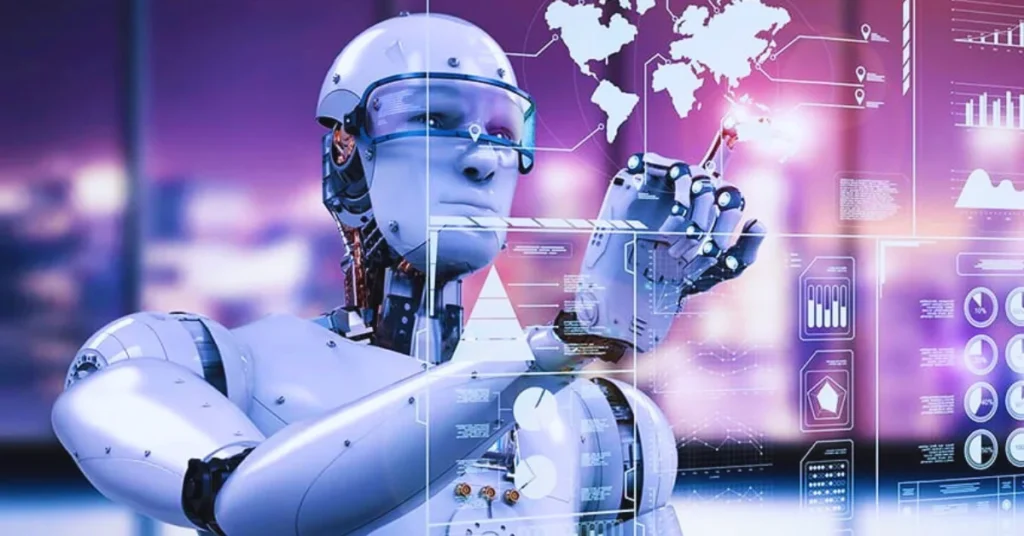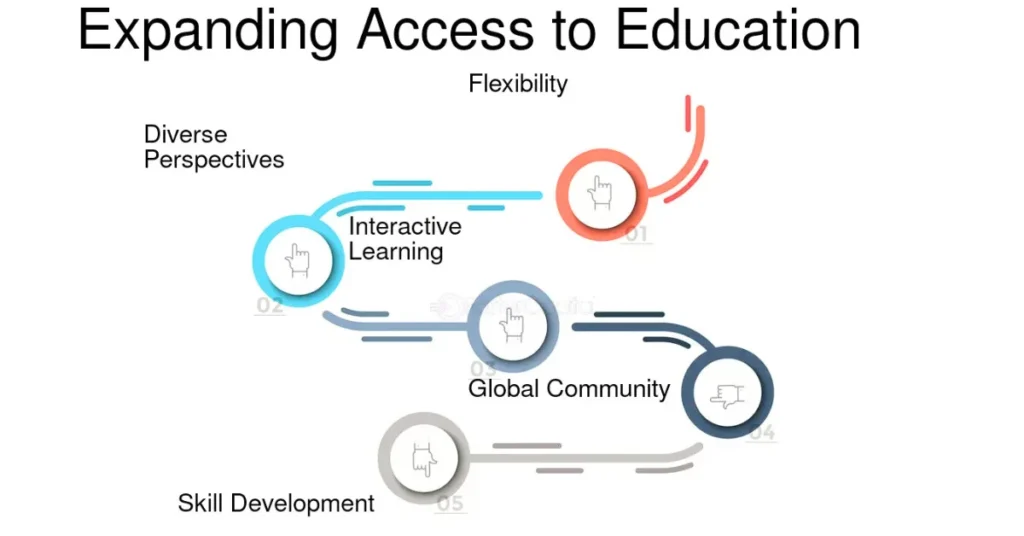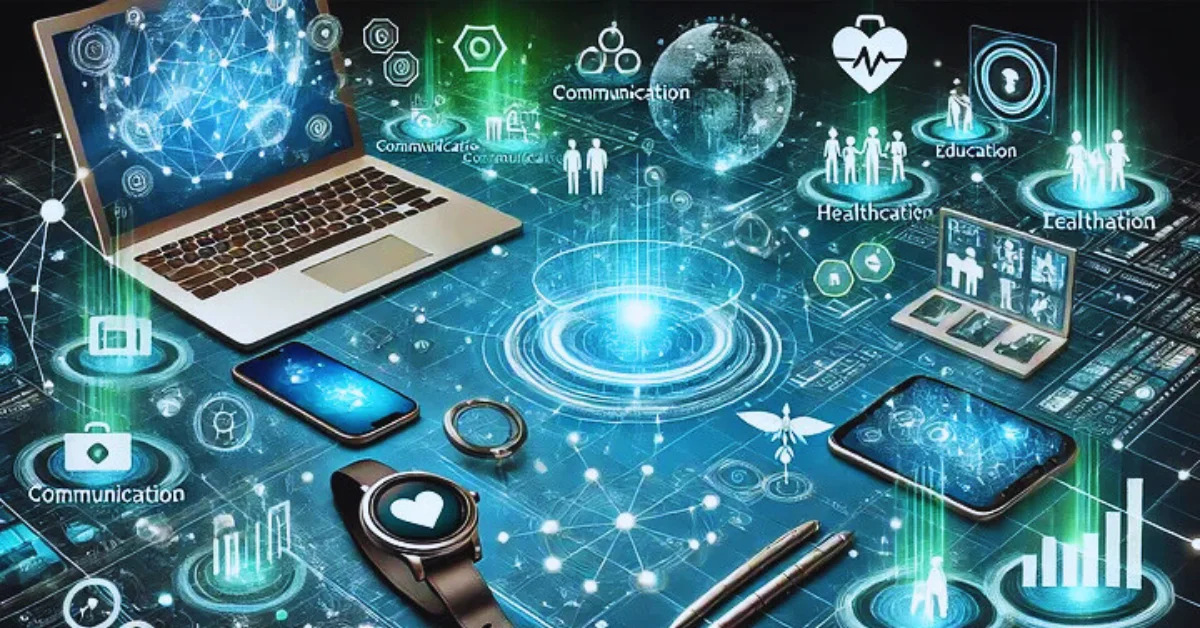Technological advancements have rapidly transformed nearly every aspect of our daily lives. From smartphones and artificial intelligence (AI) to revolutionary medical breakthroughs and the rise of remote work, technology has made the world more connected and efficient. In this article, we will explore how have technological advancements changed our lives, focusing on the key areas where technology has made the most impact, as well as the challenges that come with it.
The Evolution of Communication: Connecting the World
Faster and More Efficient Communication
One of the most significant ways how have technological advancements changed our lives is by revolutionizing communication. The introduction of mobile phones, social media platforms, and instant messaging apps has allowed us to communicate with anyone, anywhere, and at any time. The speed and convenience have reshaped how we interact, both personally and professionally.
- Social Media: Platforms like Facebook, Instagram, and Twitter have become an integral part of communication, allowing people to share ideas, experiences, and stay connected with friends and family across the globe.
- Video Conferencing: Tools like Zoom and Microsoft Teams have made remote work and virtual meetings a norm, allowing businesses to operate efficiently regardless of geographical location.
This shift in communication has not only brought people closer but has also created new opportunities for businesses, remote workers, and even education.
Collaboration in a Globalized World
In terms of collaboration, how have technological advancements changed our lives? Technology has allowed for seamless cooperation between individuals and teams located in different parts of the world. The ability to collaborate in real-time, regardless of location, has been a game-changer for businesses and educational institutions alike.
- Cloud Computing: Tools such as Google Drive, Dropbox, and Microsoft OneDrive enable the storage, sharing, and collaborative editing of documents in real-time, making teamwork much easier.
- Project Management Tools: Platforms like Trello, Asana, and Slack help teams stay organized, assign tasks, and track progress efficiently.
Transforming the Workplace: Automation and Remote Work

The Role of Automation in Our Lives
How have technological advancements changed our lives in the workplace? Automation has played a pivotal role in improving efficiency. In sectors like manufacturing, logistics, and customer service, machines and AI are increasingly taking over repetitive tasks, allowing human workers to focus on more complex and creative challenges.
- Robots in Manufacturing: Automated systems and robotics have enhanced production speed, reduced human error, and ensured consistency in industries such as automotive and electronics.
- AI and Data Analytics: AI is being used in fields like healthcare, finance, and marketing to analyze large datasets, predict trends, and assist with decision-making.
While automation has boosted productivity, it has also raised concerns about job displacement and the need for workers to acquire new skills. As technology evolves, so must the workforce.
The Remote Work Revolution
Another significant change brought about by technological advancements is the rise of remote work. Powered by digital tools and fast internet connections, many employees now have the flexibility to work from anywhere in the world. This shift has been particularly accelerated by the COVID-19 pandemic, but it is likely to remain a long-term trend.
- Work-Life Balance: With the ability to work from home, employees have reported greater flexibility, less time spent commuting, and better work-life balance.
- Access to Global Talent: Companies are no longer restricted by geographic location when hiring, allowing them to tap into a global talent pool and attract top-tier talent from around the world.
Advancements in Healthcare: Improving Lives and Access
Revolutionizing Medical Diagnosis and Treatment
How have technological advancements changed our lives in healthcare? Technology has dramatically improved the accuracy of diagnoses, the effectiveness of treatments, and the accessibility of healthcare services.
- Telemedicine: Virtual healthcare services, like telemedicine platforms (e.g., Teladoc), have made healthcare more accessible, especially for people in rural or underserved areas.
- Artificial Intelligence in Medicine: AI-powered diagnostic tools are now capable of analyzing medical images and predicting disease outcomes with remarkable accuracy. AI is also used in drug development and personalized medicine.
These advancements not only make healthcare more efficient but also provide more affordable options for people who previously might not have had access to essential medical services.
Personalized Medicine and Health Monitoring
In recent years, personalized medicine has emerged as a breakthrough. By analyzing a patient’s genetic makeup, doctors can now tailor treatments that are more effective and have fewer side effects.
- Wearables: Devices like the Apple Watch, Fitbit, and other health tracking gadgets help individuals monitor their heart rate, sleep patterns, and physical activity, providing valuable insights into their health.
- Gene Editing: Technologies like CRISPR are opening up possibilities for treating genetic disorders and advancing precision medicine.
Education and Learning: Expanding Access to Knowledge

E-Learning and Virtual Classrooms
The education sector has been significantly impacted by how have technological advancements changed our lives. Digital tools and e-learning platforms have made education more accessible to students worldwide, breaking down geographical and financial barriers.
- Online Courses: Websites such as Coursera, Udemy, and Khan Academy provide access to courses from top universities, offering learners the opportunity to study at their own pace.
- Virtual Classrooms: Platforms like Google Classroom, Zoom, and Microsoft Teams have become essential in the remote learning experience, enabling students to interact with teachers and peers in real-time.
Technology has democratized learning, providing individuals across the globe with the opportunity to acquire new skills, earn certifications, and even pursue degrees from prestigious institutions.
Accessibility for All
Technological advancements have also made education more inclusive. For students with disabilities, tools like text-to-speech software, closed captions, and specialized learning apps have made it easier for them to access educational content.
- Assistive Technology: Tools like speech recognition software and screen readers help students with physical or learning disabilities to participate more fully in the classroom environment.
Everyday Life: From Smart Homes to Digital Shopping
Smart Homes and the Internet of Things (IoT)
The rise of IoT has ushered in the era of smart homes, where everyday appliances, lighting, security systems, and even furniture can be controlled via smartphones or voice assistants. How have technological advancements changed our lives in our homes? These innovations have brought greater convenience, energy efficiency, and security.
- Energy Savings: Smart thermostats, like Nest, help control home temperatures efficiently, reducing energy consumption and lowering utility bills.
- Convenience: Devices like smart speakers (e.g., Amazon Echo) and robotic vacuums automate tasks, freeing up time for homeowners.
E-Commerce: Shopping from Your Couch
How have technological advancements changed our lives in shopping? The explosion of e-commerce has revolutionized the retail industry. Consumers can now shop from the comfort of their homes, with access to millions of products and services at their fingertips.
- Online Shopping: Platforms like Amazon, eBay, and Etsy have become household names, offering everything from electronics to clothing and groceries.
- Digital Payments: Services like PayPal, Apple Pay, and Google Wallet have made transactions safer and more efficient, reducing the need for cash or cards.
The Challenges of Technological Change

While how have technological advancements changed our lives is overwhelmingly positive, there are challenges that come with rapid technological growth. Issues such as data privacy, cybersecurity, and job displacement require careful attention.
- Privacy Concerns: The collection of personal data by tech companies has raised serious privacy issues, with consumers demanding more control over their information.
- Job Displacement: As automation and AI continue to advance, some traditional jobs may be at risk, requiring workers to adapt and reskill.
FAQ: How Have Technological Advancements Changed Our Lives?
1. What are the key areas where technological advancements have impacted our lives?
Technology has had the most profound impact on communication, healthcare, education, and the workplace. It has made communication faster, healthcare more accessible, education more inclusive, and work more flexible.
2. How has technology improved healthcare?
Technological innovations like telemedicine, AI-powered diagnostic tools, and wearable health devices have made healthcare more accessible, affordable, and efficient, leading to improved patient outcomes.
3. What are the challenges associated with technological advancements?
Despite the benefits, technology also raises concerns about data privacy, cybersecurity, and job displacement, which need to be addressed to ensure equitable and responsible use of new technologies.
Conclusion
How have technological advancements changed our lives? The answer is clear: technology has revolutionized every aspect of modern life. From communication and healthcare to education and shopping, technological innovations have made the world more efficient, connected, and accessible. However, as technology continues to evolve, it is essential to address the challenges it presents to ensure that all enjoy its benefits.
Discover detailed insights about the 4808037616 phone number on our comprehensive guide at StufferDNB.
